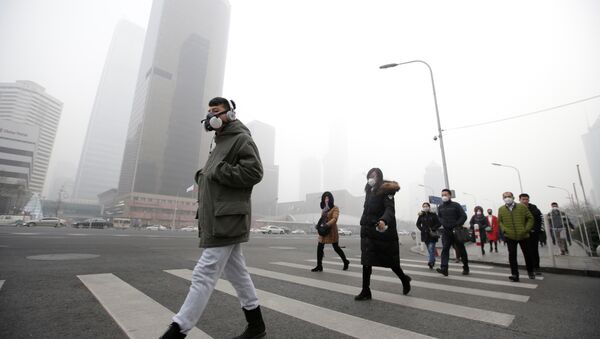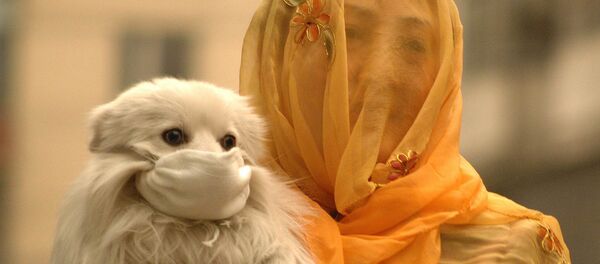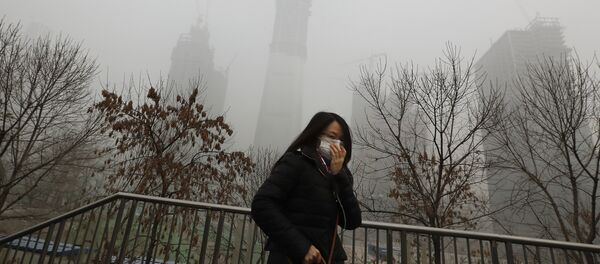As of 08:00 a.m. local time (00:00 GMT), the level of dangerous PM2.5 particles amounted to 262 micrograms per cubic meter. According to the authorities, the high air pollution level was initially registered late on Monday, which was particularly caused by the temperature increase.
PM2.5 are toxic air particles, which are sufficiently increasing the likelihood of respiratory and cardiovascular diseases. According to the World Health Organization (WHO), the level of PM2.5 concentration should not exceed 25 micrograms per cubic meter.
The yellow alert level is in place from 09:30 a.m. local time on Tuesday to at least the late hours of Wednesday, the authorities noted.
Due to the air quality deterioration in Beijing, the city authorities ordered cancellation of all events planned to be held in the open air by kindergartens and schools. Elderly people and the city residents with heart and respiratory system diseases are recommended to minimize time spent outside.
READ MORE: Has London Learned Lessons of the Great Smog Which Claimed 12,000 Lives in 1952?
The four-level color-coded air quality alert system was introduced in China in 2013. The city authorities declare the red alert level when there is smog for over three consecutive days. The orange level is introduced when the smog remains for three days, the yellow one is declared after two days of smog, and the blue level is introduced after one day of smog.
Beijing city authorities are taking various steps to fight air pollution. Particularly, they shut down polluting production facilities, and decrease the number of construction works and industrial manufacturing in winter.
The average level of air pollution in Beijing in 2017 was 58 micrograms per cubic meter, which is 20.6 percent lower than the 2016 level.




